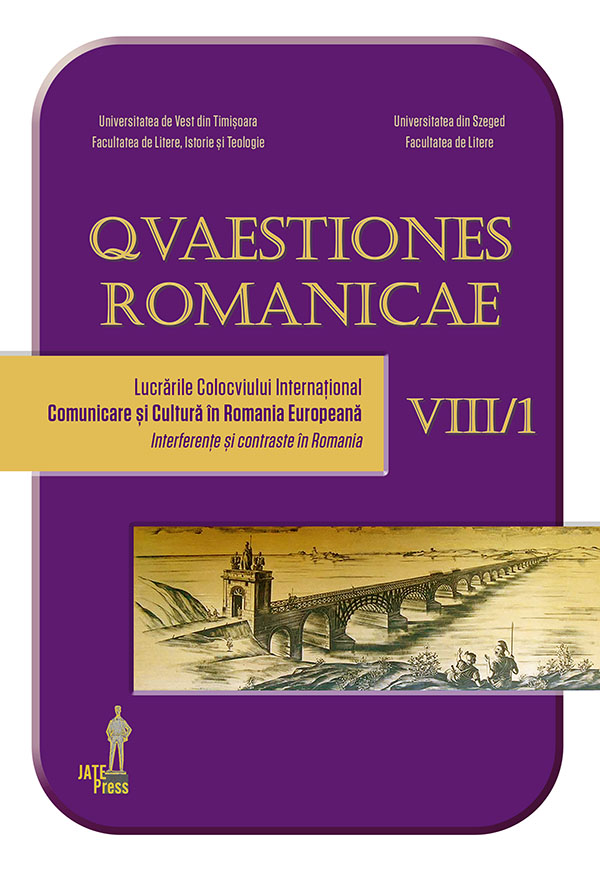Les interférences entre l’histoire et la littérature dans l’œuvre de Sylvie Germain. L’image de la seconde guerre mondiale
Abstract: (Interferences between History and Literature in Sylvie Germain's Literary Work. The Image of the Second World War) The dichotomy made by Mircea Eliade between mythical, sacred time and historical, profane time punctuates the work of Sylvie Germain. The primordial time that recalls the Golden Age is always broken by historical time, destroying paradisiacal peace, usually by the outbreak of a conflagration. The writer feels an imperative need to remember, being particularly sensitive to the suffering of the other, especially to that of the victims of which she draws a sepulture made of words: “The suffering of the victims remains unjustifiable, scandalous and forever inconsolable. [...] It is less a question of judging than of not forgetting.” A problem that haunts her is the war she finds absurd in a society inherited from two millennia of Christianity. Thus, all his work is scattered with the disastrous consequences of a fratricidal century. In our work we will be interested in the interferences between literature and history in the work of Sylvie Germain while trying to observe the image of the Second World War as a doorway to profane, historical time. We will analyze the traces left by the war at the spatiotemporal level. Besides changing the chronotope, the opposition between mythical time and profane time extends to the characterization of the characters, each time period having its specific type of character.
Keywords: history, war, profane time, myth, character.
Résumé : La dichotomie faite par Mircea Eliade entre le temps mythique, sacré et le temps historique, profane rythme l’œuvre de Sylvie Germain. Le temps primordial qui rappelle l’Âge d’Or est toujours brisé par le temps historique, détruisant la paix paradisiaque, d’habitude par l’éclatement d’une conflagration. L’écrivaine ressent un besoin impératif de faire œuvre de mémoire, étant particulièrement sensible à la souffrance de l’autre, surtout à celle des victimes dont elle dresse une sépulture faite des mots : « La souffrance des victimes y demeure injustifiable, scandaleuse et à jamais inconsolable. […] Il s’agit moins de juger que de ne pas oublier ». Une problématique qui la taraude, c’est la guerre qu’elle trouve absurde dans une société héritière de deux millénaires de christianisme. Ainsi, toute son œuvre est parsemée des conséquences désastreuses d’un siècle fratricide. Dans notre travail nous nous intéresserons aux interférences entre la littérature et l’histoire dans l’œuvre de Sylvie Germain, tout en essayant d’observer l’image de la Deuxième Guerre Mondiale en tant que porte vers le temps profane, historique. Nous analyserons les traces laissées par la guerre au niveau spatio-temporel. Outre le changement du chronotope, l’opposition entre le temps mythique et le temps profane se propage au niveau de la caractérisation des personnages, chaque période temporelle ayant son type spécifique de personnage.
Mots-clés: histoire, guerre, temps profane, mythe, personnage.
